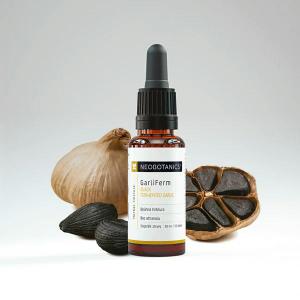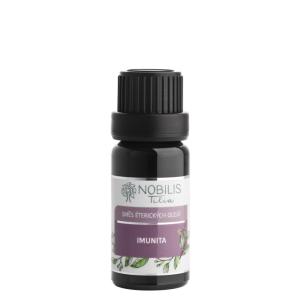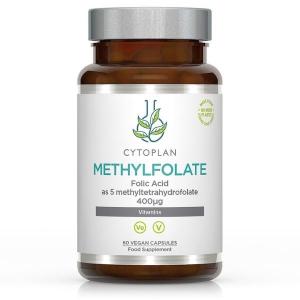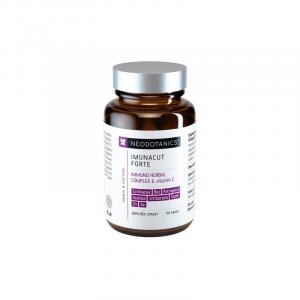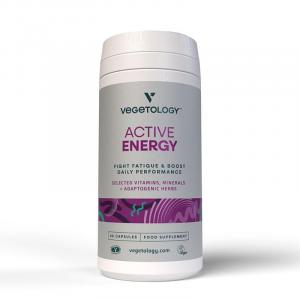
Why We Should Pay Attention to Threonine in Our Diet and Health

What is Threonine and Why is it Important for a Healthy Lifestyle?
In the realm of healthy nutrition, much is often said about vitamins, minerals, or healthy fats. However, less attention is given to amino acids – the fundamental building blocks of proteins that play a crucial role in many bodily processes. One of these essential amino acids is threonine, also known as L-threonine. Although it is not often talked about, its significance for the human body is certainly not negligible. What impact does threonine have on our body, why should we pay attention to it, and where can it be naturally sourced?
Threonine – More than Just a Part of Protein
Threonine is one of the nine essential amino acids that the body cannot produce on its own and is therefore entirely dependent on dietary intake. It belongs to the so-called proteinogenic amino acids – meaning it is directly involved in the production of proteins in the body. It is important for the proper functioning of the liver, central nervous system, as well as for the health of the skin, connective tissues, and the immune system.
Try our natural products
From a chemical perspective, threonine is a relatively simple substance, but its biological role is complex. For instance, it helps maintain protein balance in the body and is involved in fat metabolism. Some research even suggests that it may affect mood and cognitive abilities because it participates in the synthesis of neurotransmitters.
Support for Immunity and Healthy Intestines
One of the less known, but significant effects of threonine is its impact on digestive tract health. This amino acid is found in high concentration in mucus that protects the intestinal wall, helping to maintain the integrity of the mucosal barrier and safeguarding the body against harmful microorganisms and toxins. This is particularly important for individuals suffering from irritable bowel syndrome or inflammatory bowel diseases such as Crohn's disease or ulcerative colitis.
At the same time, threonine participates in the production of antibodies, making it an important element for the proper functioning of the immune system. A deficiency in threonine can lead to decreased immunity, which may manifest as more frequent infections, slower wound healing, or chronic fatigue.
Where Can We Find Threonine?
Threonine naturally occurs in a variety of foods, especially those rich in protein. The richest sources include:
- Meat and Fish – chicken, beef, pork, salmon
- Eggs and Dairy Products – cheese, cottage cheese, yogurt
- Legumes – lentils, peas, beans
- Nuts and Seeds – almonds, sunflower and pumpkin seeds
- Grains – whole wheat, oats, and buckwheat
For vegetarians and vegans, ensuring adequate threonine intake can be more challenging, but with a varied and balanced plant-based diet, it is certainly not impossible. It is important to combine different plant protein sources, such as legumes with grains, to achieve a complete amino acid profile.
L-Threonine as a Dietary Supplement
In some cases, it may be appropriate to supplement threonine into the body in the form of a supplement. Such situations may arise for individuals with absorption disorders, older adults, or athletes with high physical demands. In these cases, L-threonine, the biologically active form of this amino acid, which is easily utilized by the body, is often used.
L-threonine supplements are available in capsule or powder form and are often combined with other amino acids or vitamins. However, it is important to note that supplementation is generally not necessary with a regular diet, unless the person has a specific health problem. Before taking a supplement, it is always advisable to consult with a doctor or nutrition expert.
Threonine Deficiency
Threonine deficiency often masquerades as other issues, so you might not recognize it immediately. However, if you are experiencing fatigue, weakened immunity, frequent colds, digestive issues, or slow wound healing and deteriorating skin or hair condition, it could be a signal that this important amino acid helper is missing.
An interesting example from clinical dietetics practice involved a patient with chronic intestinal issues suffering from recurring infections and long-term fatigue. Only after thorough examination and dietary adjustment was it discovered that she was lacking several key nutrients, including threonine. After several weeks of dietary intervention, which included increased intake of legumes and fermented dairy products, her condition significantly improved.
Threonine and Sustainable Diet
In the context of an ecological and sustainable lifestyle, the question arises: can we ensure sufficient threonine and other essential amino acids without consuming animal products? The answer is yes, but it requires more planning. Plant protein sources often do not contain all essential amino acids in a balanced ratio, but by combining them – such as lentils with rice or oats with nuts – a full nutritional profile can be achieved.
Modern plant-based diets, if well-designed, can be not only ethical and eco-friendly but also fully functional from a nutritional standpoint. It is important to recognize that protein quality is just as important as quantity.
Importance for Athletes and Seniors
Threonine also plays a role in muscle regeneration and tissue repair. For this reason, it is recommended for athletes, especially after intense training when micro-tears occur in muscle fibers. The body then needs a sufficient supply of amino acids for effective repair and muscle mass growth.
In older adults, there is often a decline in muscle mass and overall energy level. Here too, an adequate intake of threonine can have a positive impact – not only on physical fitness but also on slowing down the aging processes at the cellular level.
As American biochemist Roger Williams said, "Every person is a biochemical individuality." This applies to the need for individual amino acids – some may need more, others less, depending on genetics, lifestyle, or health status.
A Small Detail with a Big Impact
Although threonine is a substance that most of us may never have heard of, its importance cannot be underestimated. This unassuming amino acid is involved in numerous key processes in the body – from protein synthesis to immune support to gut health. Ensuring its adequate intake is not difficult: just pay attention to the composition of the diet, incorporate quality proteins, and consider natural plant supplements if necessary.
In a time when more people strive for harmony between health, ethics, and sustainability, a conscious approach to diet is key. And threonine? It can be one of the small, yet important pieces of the whole puzzle.
